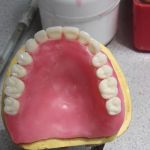Can Diabetes Cause Tooth and Gum Problems? Understanding the Link Between Diabetes and Oral Health
- 1. Introduction
- 2. How Diabetes Affects Your Teeth and Gums
- 3. Impact of High Blood Sugar on Oral Health
- 4. Complications and Risks of Poor Oral Health in Diabetic Patients
- 5. Real-Life Examples and Experiences
- 6. Prevention and Care for Diabetic Patients
- 7. Conclusion
Diabetes is a chronic condition that affects millions of people worldwide. While many focus on the impact of diabetes on blood sugar levels and organ function, the connection between diabetes and oral health is often overlooked. Can diabetes cause tooth and gum problems? The answer is yes. Diabetes can significantly impact your oral health, leading to a range of tooth and gum issues that require attention and care. In this article, we will explore how diabetes can affect your teeth and gums, the potential risks, and how you can protect your oral health.
2. How Diabetes Affects Your Teeth and Gums
Diabetes affects the body’s ability to manage blood sugar levels, which can have a direct impact on oral health. When blood sugar levels are poorly controlled, it can lead to dry mouth, gum disease, and an increased risk of infections. High blood sugar levels provide an ideal environment for harmful bacteria to grow in the mouth, which can lead to tooth decay and gum disease.
3. Impact of High Blood Sugar on Oral Health
When blood sugar levels are consistently high, it can cause several problems for your oral health:
- Dry Mouth: High blood sugar levels can reduce the flow of saliva, leading to dry mouth. This lack of saliva makes it more difficult for the mouth to wash away food particles and bacteria, increasing the risk of tooth decay and gum disease.
- Gum Disease: Diabetes weakens the body’s immune response, making it more difficult to fight off infections like gum disease. Gum disease, if left untreated, can lead to tooth loss.
- Tooth Decay: High blood sugar levels can cause an increase in plaque buildup, which leads to cavities and other forms of tooth decay.
4. Complications and Risks of Poor Oral Health in Diabetic Patients
Diabetic patients who neglect their oral health are at a greater risk for several complications:
- Infections: Poorly managed diabetes can lead to an increased susceptibility to infections in the mouth, which may require medical intervention.
- Gum Recession: Gum disease can cause gums to pull away from the teeth, leading to tooth sensitivity and even tooth loss.
- Delayed Healing: Diabetes can slow down the body’s healing process, making it harder for oral wounds or infections to heal.
5. Real-Life Examples and Experiences
Many individuals with diabetes have experienced firsthand the impact of the condition on their oral health. For example, a study conducted by the American Diabetes Association found that people with poorly controlled diabetes were twice as likely to develop gum disease compared to those without the condition. Additionally, many diabetics report frequent issues such as dry mouth, tooth sensitivity, and gum bleeding. These experiences emphasize the importance of proactive oral care and regular dental check-ups for diabetic patients.
6. Prevention and Care for Diabetic Patients
Taking care of your oral health as a diabetic patient is essential for preventing serious problems. Here are some steps you can take:
- Maintain Good Blood Sugar Control: The better you manage your blood sugar levels, the less likely you are to experience oral health problems. Regular check-ups with your healthcare provider can help you stay on track.
- Brush and Floss Regularly: Brush your teeth at least twice a day and floss daily to remove plaque and prevent tooth decay and gum disease.
- Regular Dental Visits: Visit your dentist regularly for cleanings and check-ups. Let your dentist know if you have diabetes so they can monitor your oral health closely.
- Stay Hydrated: Drink plenty of water to help keep your mouth moist and reduce the risk of dry mouth.
7. Conclusion
Diabetes can indeed cause tooth and gum problems, but with proper care and attention, these issues can be managed effectively. By maintaining good blood sugar control, practicing excellent oral hygiene, and visiting the dentist regularly, you can protect your oral health and avoid complications. If you’re a diabetic patient, make sure to take proactive steps to ensure your teeth and gums stay healthy. For more information on how to manage your oral health as a diabetic, visit Dentistry Toothtruth and explore our products designed to support your oral care needs.







 Dorfman Orthodontic Group - Bensalem5.0 (199 review)
Dorfman Orthodontic Group - Bensalem5.0 (199 review) Dental Solutions of Roxborough4.0 (219 review)
Dental Solutions of Roxborough4.0 (219 review) Suburban Dental Medicine4.0 (31 review)
Suburban Dental Medicine4.0 (31 review) Smiles Divine Dental4.0 (25 review)
Smiles Divine Dental4.0 (25 review) Icon Dental4.0 (48 review)
Icon Dental4.0 (48 review) Affordable Dentures & Implants4.0 (443 review)
Affordable Dentures & Implants4.0 (443 review) The Importance of Oral Health Education During Pregnancy for a Healthy Pregnancy
The Importance of Oral Health Education During Pregnancy for a Healthy Pregnancy Best Tips for Brushing Your Teeth Properly for Healthy Gums: Essential Techniques for Oral Health
Best Tips for Brushing Your Teeth Properly for Healthy Gums: Essential Techniques for Oral Health Why Skipping Dental Checkups Can Lead to Bigger Oral Health Problems
Why Skipping Dental Checkups Can Lead to Bigger Oral Health Problems Advantages of Porcelain Dental Restorations
Advantages of Porcelain Dental Restorations How Can Diabetes Cause Tooth and Gum Problems? Preventing and Managing Oral Health Issues
How Can Diabetes Cause Tooth and Gum Problems? Preventing and Managing Oral Health Issues Healthy Habits for Promoting Good Oral Health and Hygiene: Tips for a Healthy Smile
Healthy Habits for Promoting Good Oral Health and Hygiene: Tips for a Healthy Smile